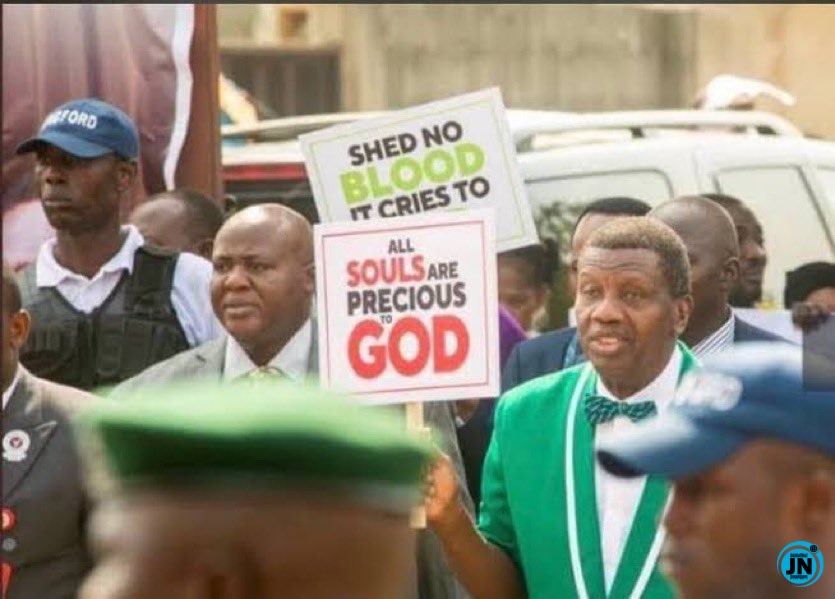The General Overseer of the Redeemed Christian Church of God (RCCG), Pastor Enoch Adeboye, alongside other prominent Nigerian clergymen, has come under intense criticism on social media over their silence in the wake of the recent gruesome massacre in Plateau State, Nigeria. The brutal incident, which occurred on April 13, 2025, claimed the lives of no fewer than 54 innocent people, including women and children, and left several others injured, while entire communities were left in mourning.
The attack took place in the early hours of Saturday between the hours of 12:00 am and 1:00 am when unknown armed men stormed Zikke village in Bassa Local Government Area, Plateau State. Witness accounts describe how the attackers unleashed terror, burning down houses, looting food stores, and mercilessly killing anyone in their path. Entire families were wiped out as survivors recounted harrowing experiences of hiding in bushes to escape the carnage.

Since news of the attack broke, a wave of outrage has swept across the country, with Nigerians on social media demanding justice for the victims and accountability from the authorities. Amid this growing outcry, many have turned their attention to well-known religious leaders, questioning their continued silence in the face of relentless bloodshed across the country’s Middle Belt and Southeast regions.
Among those facing heavy criticism is Pastor Enoch Adeboye, whose silence has reignited debate over the responsibility of religious leaders to speak out on national tragedies. Social media users accused the respected cleric of selective activism, pointing to his history of vocal criticism during former President Goodluck Jonathan’s administration and lamenting what they described as his notable silence since President Bola Ahmed Tinubu assumed office.
A Twitter user, @OmegaXDreams, expressed their disappointment, tweeting: “Dear @PastorEAAdeboye, you have a big platform, why are you not speaking out like you did during Goodluck Jonathan’s administration??? You have been silent since Tinubu took over. Plateau, Enugu and Benue are bleeding! Speak Up SIR!!!”
Echoing similar sentiments, another user, @choboiiii, remarked: “I remember Adeboye praying passionately for the people of Israel. Right here in his own country, Christians are being butchered and he has remained silent. That fraud hasn’t said a thing. Smh.”
More reactions poured in from users like @GayleZoie, who didn’t mince words: “Including Iren, Kumuyi, Adeboye etc — all of them are cowards. When it comes to Peter Obi or tithing, their mouths are sharp. Pastorpreneurs everywhere.”
Another Twitter user, @RealOlaudah, listed several high-profile pastors he believed have similarly failed in their duty to speak up: “Adeboye, Oyedepo, Ibiyomie, Adefarasin, Okotie, Oyakhilome — none of them has spoken out against the genocide of indigenous peoples in the Middle Belt and fringes of the South East. NONE OF THEM!”
The criticism reflects a growing frustration among Nigerians who believe that spiritual leaders, with their massive followings and influence, have a moral duty to address pressing national crises beyond religious sermons. As the nation mourns yet another avoidable tragedy, calls for religious accountability continue to trend, with many demanding that clerics actively speak out against insecurity and injustice.

